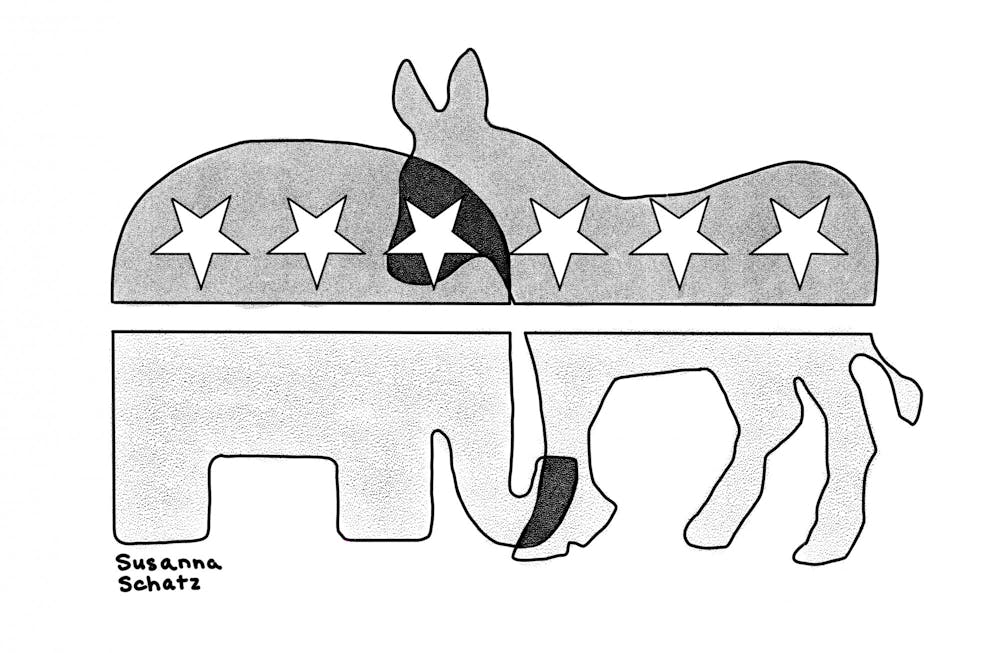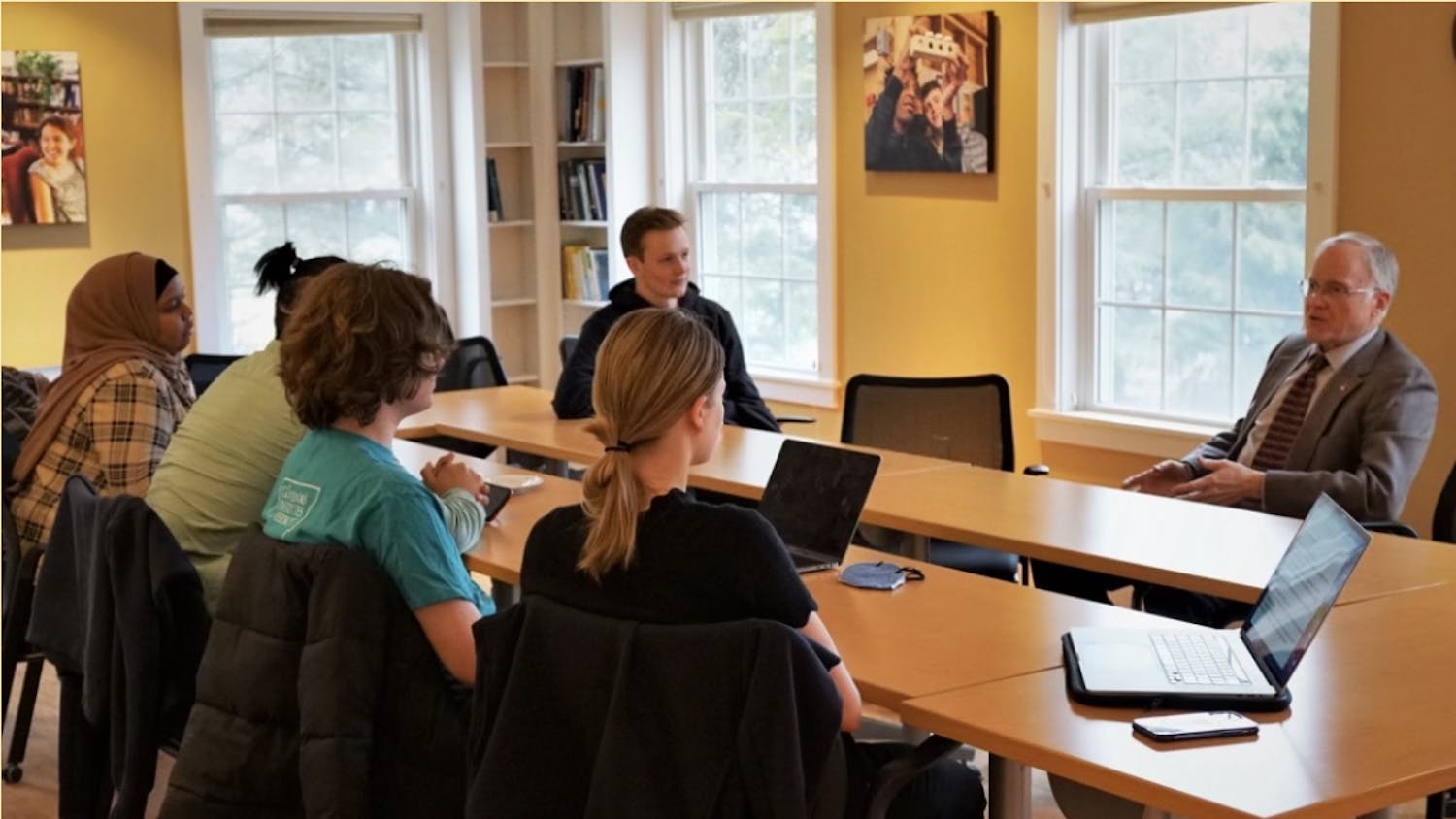Vermont holds the record for the most consecutive victories for governors seeking reelection. Over the past half-century, all 18 of the state’s governors who have made bids for reelection were successful.
A number of states have high rates of reelecting incumbent governors — in 2014, the national reelection rate was 74.9% over the past 50 years. According to former Governor Jim Douglas, Vermont’s smaller population and geographic size, along with two-year gubernatorial terms, position Vermont incumbents particularly well for reelection.
These factors have served incumbent governor Phil Scott well over the past six years. Scott, a Republican, won the 2016 election by 8.7%, the 2018 election by 14.9%, and the 2020 election by 41.1%.
Scott appears well-positioned to defeat Democratic candidate Brenda Siegel in this month’s election.
With an overwhelmingly Democratic-leaning state legislature, two Democrat Senators, and a Democrat Representative, Scott’s success is perhaps surprising. According to Political Science Professor Matt Dickinson, however, Vermonters like to balance their left-leaning elected officials with some conservative influence.
“[This] reflects a broader sense of concern about allowing either party to have majority control over the governor’s office, Senate and House, or their equivalent,” Dickinson told The Campus. Dickinson added that this is a trend across several New England states. In Massachusetts, Republican governor Charlie Baker serves alongside a Democrat controlled state legislature. Republican Chris Sununu presides over New Hampshire, a state which voted for Biden by a margin of 7.3% in the 2020 presidential election.
Dickinson said he believes Vermonters are drawn to electing a Democratic legislature, which they expect to address issues such as housing, education and climate change, while they expect a Republican governor to hold the line on spending. “There is a method to this madness of dividing control of government between Democrats and Republicans,” he said.
Douglas, a Republican who served as governor from 2003 to 2011, said Vermonters tend to go back and forth between an expansionary period of a Democrat governor spending considerable money and a Republican successor figuring out how to pay for it.
“There is that back and forth to provide some balance over time,” Douglas told The Campus.
The past twelve Vermont governors have alternated between the two major political parties. Prior to 1963, Vermont was an overwhelmingly Republican state — Philip Hoff served as the first Democratic governor in over 100 years from 1963 to 1969. The past four governors were Howard Dean (Democrat), Douglas, Peter Shumlin (Democrat), and Scott.
As residents from New York City, Boston and other northeastern cities moved to more rural areas in the 1960s, young, left-leaning, outdoors-loving professionals were attracted to Vermont. This migration precipitated the shift in Vermont from one of the nation’s most solidly Republican states from 1856 to 1960 to one of its most Democratic, Dickinson said.
Despite Vermont going for the Democratic candidate in the past eight presidential elections, Douglas said he believes Vermont voters largely identify as independents. Vermonters do not officially register with a political party.
A lack of party registration and identification at the state level might make left-leaning Vermonters more open to electing a Republican governor, Dickinson said.
Another factor that perhaps worked to the benefit of Republicans such as Scott and Douglas is the shorter term length. At just two years, voters are more likely to give a candidate the benefit of the doubt, Douglas said.“[They figure] if we make a mistake, it’s not for long,” he said.
At the same time, as an outspoken critic of Trump, Scott has made an effort to stand apart from the national Republican Party. While there is a faction of Trump supporters in the state’s Republican Party, the Republicans who dominate the party in the state legislature are more moderate, Dickinson said.
Accordingly, Scott knows that he must work across the aisle with Democrats in the legislature to get things done, but is also willing to veto Democratic bills if legislators cannot come to an agreement. “It’s not like everything between him and the Democrats is hunky dory, but they both understand to get anything done they need to compromise with each other,” Dickinson said.
Scott gained considerable support among all Vermonters for his handling of the Covid-19 pandemic — he kept spending and tax rates down, while the state boasted high vaccination rates, a low case rate, and a low death rate. Scott has also been able to work with Democrats to pass a budget each year and to collaborate on passing tighter gun control laws.
Douglas said he believes the main change to the Vermont Republican Party since its creation is a decrease in its strength. The party has been divided between more moderate and conservative members since before the Democratic Party became competitive, he added.
“There has always been a big tent and different wings. The specifics have changed but it has always been quite diverse,” he said.
Looking ahead to next week’s election, Douglas said he doubts Scott will tally as high a percentage of the vote as the 2020 election, where he experienced widespread support for his handling of the pandemic. However, Douglas still expects Scott to win comfortably.
According to Douglas, Scott also hopes to win at least 51 Republican members (up from its current 46) in the House in order to have veto power. As of right now, Democrats and Progressives combined have a two-thirds majority to override Scott’s vetoes.
Douglas said he believes Vermonters keep an open mind when assessing candidates. “Vermonters jump around the ballot and make a decision in each race individually,” he said.

Maggie Reynolds '24 (she/her) is the Editor in Chief.
Maggie previously served as the Senior Local Editor, a Local Section Editor, and a Staff Writer. She spent this past J-term interning for VTDigger, covering topics from affordable housing in Addison County to town government scandals. She also interned for Seven Days VT as an arts & culture reporter summer 2022 and as a news reporter for the Daily Gazette in Schenectady, NY summer 2021.
Maggie is majoring in History and minoring in Political Science and Spanish. She was a three-year member of the Women's Swimming and Diving team. Maggie enjoys running, hiking, and iced maple lattes.



